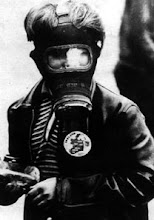An interesting take for this year is going to be sociology. Particularly when it comes to the issue of ethnicity/race. I think it would be a great and educational way to take this year's resolution, since the NCFCA resolutions rarely discuss the issue of race and ethnicity (minus the diversity v. unity resolution way back in the day).
Competition Produces Harmful Ethnic Relations
The Troubles in Northern Ireland, a conflict that killed over 3,000 people the majority of whom were civilians, is produced largley because of a complete lack of cooperation and because of political and economic competition between the nationalist Catholic minority and unionist Protestant majority.
"Economic grievances compounded religious and political competition..."-- Belfast's Unholy War: The Troubles by Alan F. Parkinson, The English Historical Review.
http://ehr.oxfordjournals.org/cgi/pdf_extract/120/489/1461
"In fact, you could argue that the biggest contributor to the peace process in recent years has been the opportunity for both communities to earn a decent living. After all, that's what many such struggles come down to in the end, a competition for resources."-- Niall McKay, PBS Frontline
http://www.pbs.org/frontlineworld/blog/2005/08/the_ira_are_the_1.html
Cooperation Helps Stop Ethnic Conflict
Bulgaria has long been plagued by ethnic violence and tensions. So when USAID and Partner Bulgaria Foundation come up with a strategy for solving these issues, they depended largely on cooperation between these different groups, as opposed to harmful competition.
Partner Bulgaria Foundation with support and assistance from USAID designed and implemented a comprehensive program to build sustainable structures to promote inter-ethnic and inter-sectoral cooperation in multi-ethnic locations, facilitate ethnic conciliation, and increase the effectiveness of minority groups and those working with them to improve practical and ideological conditions within multi-ethnic communities.
The majority of the participants in the Program adopted the ideas and practices of cooperation and partnership. Successful partner relationships with municipal authorities have provided a catylst to change the prior attitude where government and insitutions were not accessible – this is a prerequisite for renewed self-confidence with the micro projects teams.
Dupnitsa Mayor Parvan Dangov remarks, “Mediation is a good practice. We’ve had good results with Partners Bulgaria Foundation: They recognized a problem and showed how it can be resolved. We want to continue our cooperation.”
http://pdf.usaid.gov/pdf_docs/PDACK677.pdf
16 years ago

No comments:
Post a Comment